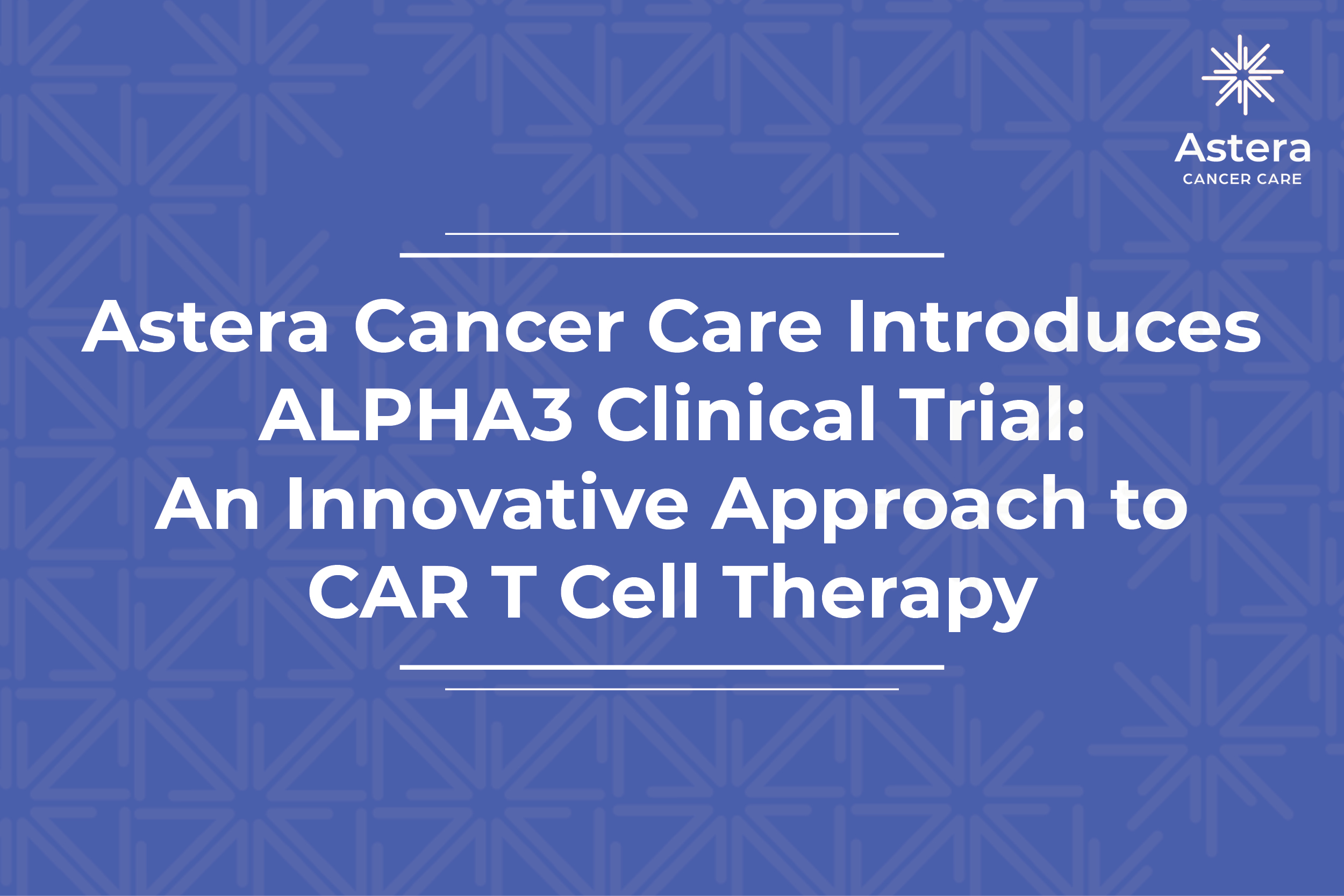Astera Cancer Care has collaborated with Allogene Therapeutics to revolutionize the landscape of CAR T cell therapy, particularly for patients with Large B-Cell Lymphoma (LBCL). This partnership is poised to significantly improve patient outcomes by providing a faster and more accessible treatment option through the innovative ALPHA3 clinical trial.
The ALPHA3 clinical trial targets patients with LBCL who have completed and responded to their initial chemotherapy. The trial has recently completed its site initiation visit. Astera Cancer Care proudly served as one of the first sites opened in the United States. Broader participation in the trial is anticipated to begin before the end of the summer. Astera Cancer Care has identified its first candidate and is potentially preparing to consent its first patient, marking a pivotal step forward in this innovative treatment approach.
While effective, traditional CAR T cell therapy presents several challenges for patients. CAR T cell therapy involves using the patient’s own T cells, which must first be collected through a process known as apheresis. Following collection, the T cells are sent to a specialized facility where they are genetically modified to become CAR T cells. This entire process, from collection to re-infusion, can take up to eight weeks. In most cases, patients often need to travel to specialized centers for both apheresis and subsequent treatment, adding to the burden of their already taxing health conditions.
In contrast, Allogene’s approach uses T cells from healthy donors, eliminating the need for apheresis and the lengthy manufacturing process associated with traditional CAR T therapy. Instead, the CAR T cells are pre-manufactured and readily available, reducing the time patients must wait to receive treatment.
"I have watched with interest the acceleration of CAR T research in LBCL, but because most patients live more than 2 hours from the nearest treatment center, it’s not feasible for them to participate," said Dr. Edward J. Licitra, MD, PhD, Chief Executive Officer of Astera Cancer Care. "Having access to an 'off-the-shelf' CAR T product with a manageable safety profile changes that equation dramatically for me, and my patients."
The ALPHA3 trial’s design focuses on minimal residual disease (MRD) testing, which involves monitoring circulating tumor DNA in the blood to assess the presence of residual disease. Patients who exhibit a complete or partial response after initial treatments undergo MRD testing to determine their risk of recurrence. Those identified as MRD-positive may receive CAR T cell therapy within one month, a significantly shorter timeframe compared to traditional methods.
The Phase 2 ALPHA3 trial represents an advancement in treating large B-cell lymphoma (LBCL). Over 60,000 patients are expected to be treated for LBCL annually in the US, EU, and UK. While first-line (1L) R-CHOP or other chemoimmunotherapy regimens are effective for most patients, approximately 30% will relapse and require subsequent treatment.
The ALPHA3 trial is designed to screen patients at high risk for relapse after 1L treatment using an ultra-sensitive investigational MRD technology (CLARITY™ powered by PhasED-Seq™, Foresight Diagnostics). Cema-cel, the investigational CAR T cell product, is administered as a one-time infusion immediately upon detection of MRD following six cycles of R-CHOP or another standard 1L chemoimmunotherapy regimen. This approach positions cema-cel as the "7th cycle" of frontline treatment for eligible patients with MRD, aiming to improve 1L cure rates in LBCL.
The trial will be conducted across various cancer treatment centers, including community cancer centers, where most earlier-line patients seek care. This randomized study will enroll approximately 240 patients and aim to demonstrate improvement in event-free survival (EFS) compared to the current standard of care, which is observation.
"'Off-the-shelf' CAR T products will allow for greater access to cutting-edge technologies for patients in their local communities, and this will improve outcomes for many more cancer patients," Dr. Licitra added. "We are excited to help define a new treatment standard in LBCL."
This trial exemplifies Astera Cancer Care’s dedication to integrating advanced therapies into community oncology practice, ensuring that cutting-edge treatments are accessible to all patients. The importance of research and clinical trials cannot be overstated, as they are crucial for delivering advanced therapies that improve patient outcomes.

